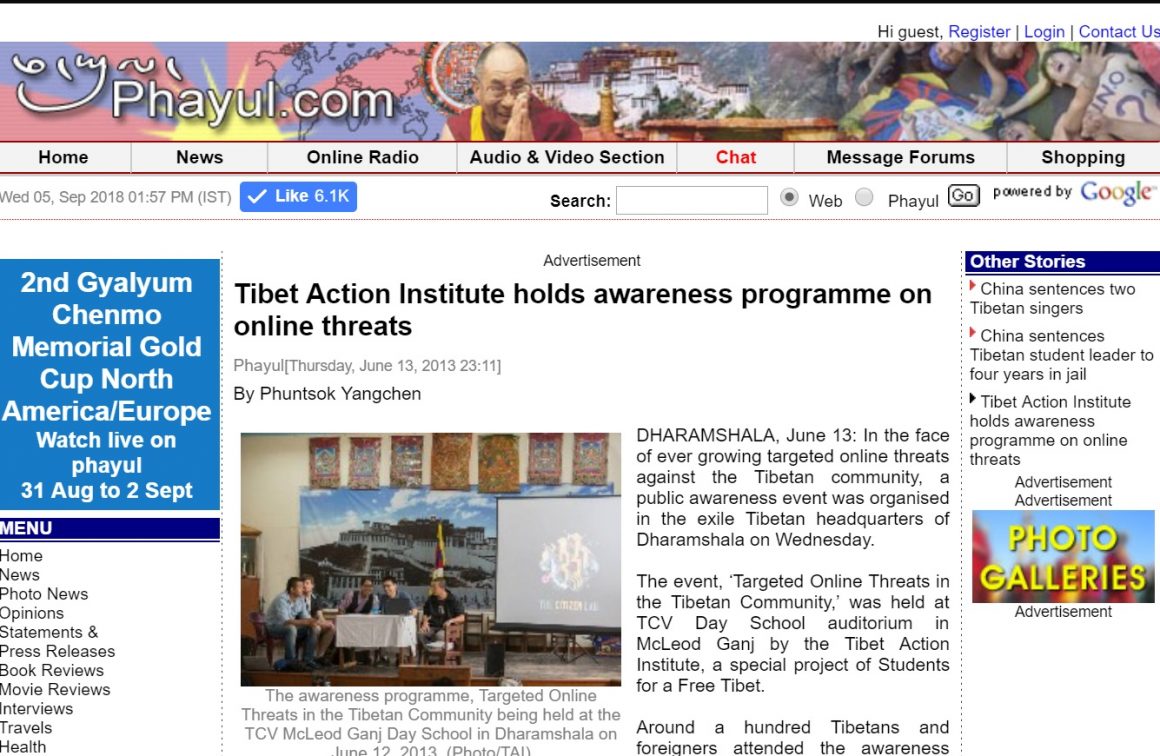Tibet Action Institute holds awareness programme on online threats
DHARAMSHALA, June 13: In the face of ever growing targeted online threats against the Tibetan community, a public awareness event was organised in the exile Tibetan headquarters of Dharamshala on Wednesday.
The event, ‘Targeted Online Threats in the Tibetan Community,’ was held at TCV Day School auditorium in McLeod Ganj by the Tibet Action Institute, a special project of Students for a Free Tibet.
Around a hundred Tibetans and foreigners attended the awareness event. Key speakers included Masashi Crete-Nishihata from the University of Toronto’s Citizen Lab and Lhadon Tethong, Director of Tibet Action Institute.
Speaking about his research on security threats faced by the Tibetan community, Masashi said Tibetans are targeted as a community and not as an individual.
An independent report by Akamai Technologies earlier this year had found that China is the world’s largest source of cyber attacks, accounting for a third of all the cyberattacks in the third quarter of 2012.
Lhadon, who heads the Institute, which develops the use of “leading-edge technology in order to achieve long-term campaign goals, create safe and secure communication systems, and build movement capacity and capability” explained why Tibetans are being constantly targeted.
She noted that Tibetans have been “effective in undermining Chinese control inside Tibet and in exile” forcing Beijing to see Tibetans as a challenge to their power.
“They (China) are not fighting us because we are weak; they are fighting us because we are strong,” Lhadon said.
She stressed on the role of individuals in combating the constant barrage of cyber attacks, most of which emanate from China.
“Everyone of us collectively bears some kind of responsibility; we all have a role to play in keeping the community safe and secure,” said Lhadon. “We can make a commitment to be safe for the sake of our people and for the sake of the lives and securities Tibetans inside Tibet who are risking everything. We can try to provide them with a little bit of protection in their lives.”
Secure mobile apps for Android and Iphone and public awareness materials were also distributed during the event.
According to its website, the Tibet Action Institute “maximises the power and potential of new communication technologies for the Tibetan Freedom Movement and trains young Tibetan leaders in the art of strategic nonviolent resistance.” The institute also helps Tibetans “defend against China’s malicious cyber attacks and promote safer and more secure communications between all Tibetans.”




